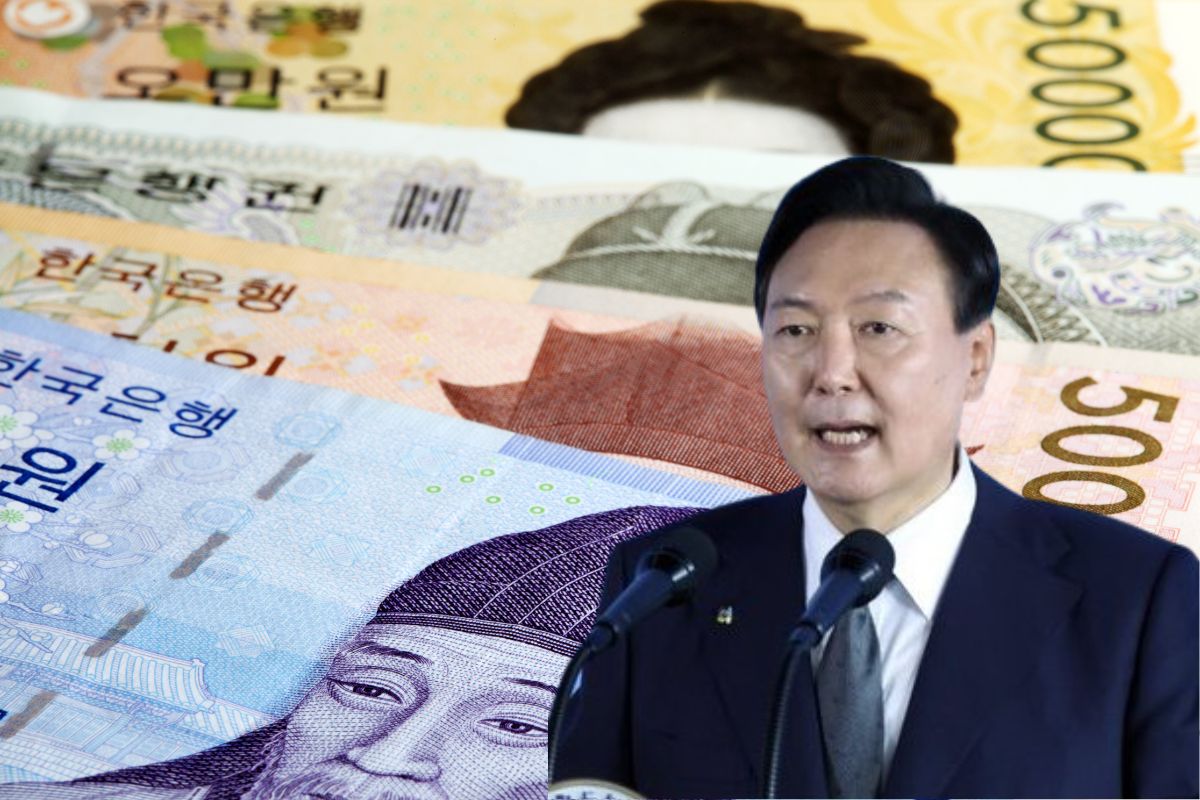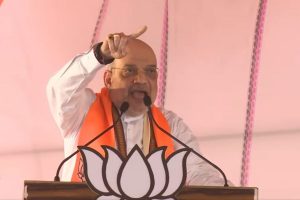The South Korean currency market is now in turmoil as the local currency continues to depreciate sharply against the US dollar, sparking worries about speculative trading and its negative impacts on the broader economy. Warning signs came on Monday when the Korean won tumbled below the 1,340 level during trading hours before settling at 1339.8 won per US dollar. On Tuesday, the country’s foreign exchange authorities verbally warned to tame the fall, but the local currency skidded to close at 1,345.5 won, hitting a fresh record in more than 13 years since the global financial crisis in April 2009.
It ended at 1,342.1 won Wednesday. The immediate cause was hard-line comments from US Federal Reserve officials. The Fed is raising the benchmark rate to rein in the runaway inflation, translating into a stronger dollar across the global financial market, including the Seoul foreign exchange bourse. Alarmed by the latest development, President Yoon Suk-yeol said Wednesday he would take steps to prevent another financial crisis and soften the economic shocks to people.
Advertisement
Yoon’s remarks came at a macrofinancial meeting with government officials and economic experts as the Korean currency continued to weaken and the trade deficit widened. The weakening of the local currency is not an overnight development. The Korean won hovered around the 1,150 won level against the US dollar early this year, with a range of fluctuation between 20 and 30 won. But the currency continued to lose its value in the following months and reached the 1,300 won level in July.
In recent weeks, the question has become not whether the local currency can pull out of the 1,300 won level, but how fast it could move toward the much-dreaded 1,400 won level, according to financial analysts. Whenever experts pointed out the possibility of a foreign capital outflow as a result of the Korean won’s fall, local financial authorities brushed off such concerns, citing the country’s sound fundamentals.
But some analysts raised questions about whether Korea has enough foreign reserves to fend off speculative assaults on the foreign exchange market. The country’s foreign reserves came to 438.61 billion won ($327 million) as of the end of July, slightly up from the previous month, according to the Bank of Korea. But it did not offer a reassuring message to market watchers as the reserve plunged in June as foreign exchange authorities unloaded dollars to keep the local currency from tumbling further. If the current pace of depreciation continues unchecked, it seems inevitable that the reserve will shrink at a fast pace.
Keeping the local currency relatively cheaper than the US dollar used to be a goal of financial authorities in many countries, as it strengthened the competitiveness of export items on the global market. Things are now starkly different, as the depreciation of the local currency can translate into higher prices of imported goods, fueling the already high inflation further and destabilizing the economic policy at large.
A version of this story appears in the print edition of the August 29, 2022, issue.
















